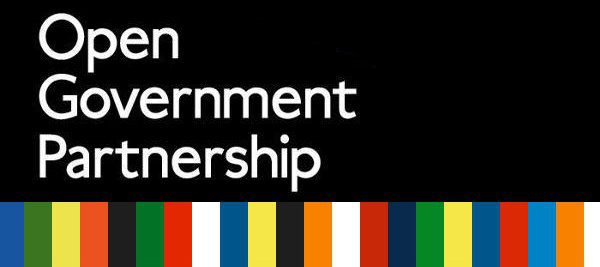Democracy & Governance
Open Government Partnership: Opportunity For The Incoming States’ Administration -By Kareem Abdulrasaq

Across the
Since its launch in 2011, OGP has 79 participating countries and 20 subnational governments who have made over 3,100 commitments to make their governments more open and accountable. It is believed that through the platform, both the state and civil society will become co-equal partners in co-creating commitments which a nation would then work to achieve and have a common ground on issues that affect the country. Admiring this genuine initiative, Nigeria joined the platform in July 2016, a month after the president Muhammadu Buhari expressed the commitment of the country to the principles of OGP at the London Anti-Corruption Summit.

Nigeria membership of OGP network may not be unconnected to promote transparency in the public offices. It is believed that effective management of the
As part of the obligation OGP, the country developed its OGP National Action Plan for 2017-2019 which focused on 4 thematic areas namely Fiscal Transparency, Anti-Corruption, Access to Information and Citizens’ Engagement. Under these thematic areas, there are 14 commitments namely citizens’ participation, open contracting, anti-corruption information sharing, FOIA compliance for review and disclosure,
If federal government is becoming more accountable, open in its budgeting, engaging citizens, and disclosing relevant, the impacts on the way government and public services work cannot be ignored. In this regard, subnational governments need to imbibe the culture because it is where significant level of services are delivered. Evidence has shown that most states government are characterized with high level of fiscal secrecy, corruption, poor culture of accountability, and access to technology. These have created difficulty in achieving good governance, and better development. It is part of the attempt to correct the culture that the Declaration was made by the OGP Steering Committee at the OGP summit in Paris in 2016 on the need to take OGP to provinces, states and local levels. It was observed that a large number of open government innovations and reforms occur at the local level and for the OGP to realized its objective in a country, proximity of the government to the citizens’ is key for direct and effective public services delivery.
It needs to note here that the multi-stakeholder representation in all aspects of governance in OGP span from initial dialogue to making decisions to actual execution. Through this platform, it is believed that subnational government could work with the civil society groups, and the private sectors; to identify loop hole, designed commitment and create innovative step towards moving it out of its currents state of development. State such has Kano, Ebonyi, Anambra, Niger, Abia, Edo, Enugu and Kaduna who have signed into the OGP did not do that in vacuum, they saw great opportunity to improve and attract innovation in the governance. They see opportunity that enable governments to work better for citizens; they understand that when government is open and accountable, it gains people’ confidence, increases legitimacy, attract development partners, investors and enable peace of mind. They see beyond the signatory but the future benefits. In this regard, commitments area not only made but executed.
Many states are not OGP signatory because, they believed in status quo and dictate of godfather. They lack vision and trust. Apart from the low commitment toward open governance, they have poor attitude towards
More so, our state public officers, often ask their family and friends to register
Our state governments need to understand that OGP when implemented effectively, will provide a win-win situation in terms of effective decision-making, value for money, a sense of democratic participation, ownership of the choices and decisions taken for both the state (government) actor and non-state actors (civil society, private sectors, etc.). This is because there will be
Also when information is available, it will give citizens unparalleled access to the performance indicators, and this will allow them to compare costs and services and make informed decisions on any project initiated by the MDAs. Given this opportunity, OGP will be an indispensable means for genuine human development given citizen information that they need to hold government accountable and
Therefore, the incoming administrations especially the returning government should as
Lastly, civil society groups need to collaborate with media to create more awareness about the benefit as well as the impact for
Kareem Abdulrasaq
From Ilorin, Kareem21r@gmail.com


















